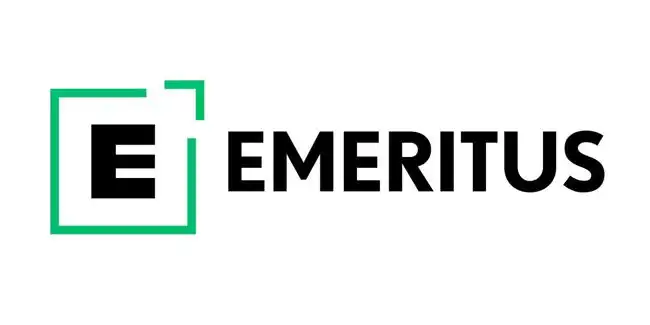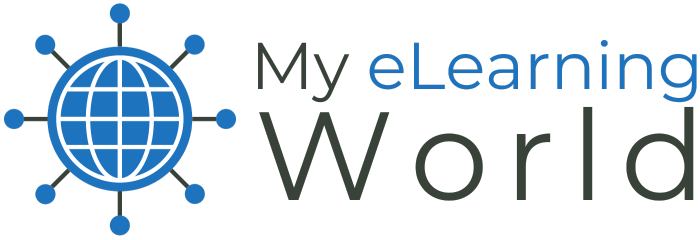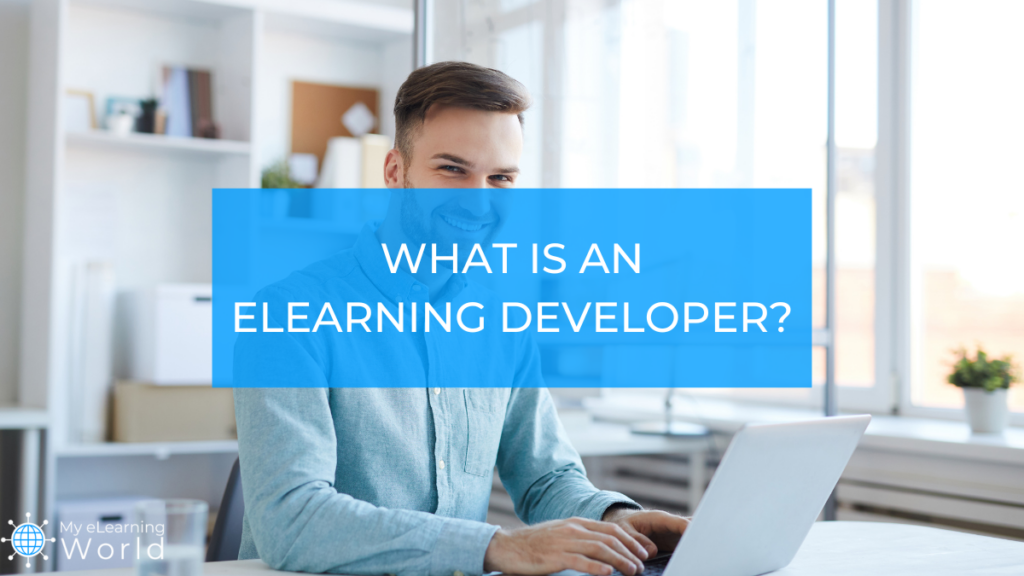In recent years, “eLearning Developer” has become one of the most popular job titles in the training and development industry. An eLearning developer is a professional who specializes in designing, creating, and implementing digital educational materials and courses, often using various multimedia and interactive technologies to enhance online learning experiences.
As someone who’s been in this industry for nearly 20 years, I can tell you firsthand that eLearning development jobs are in high demand, and it can be a lucrative, fulfilling career to pursue. In fact, the Bureau of Labor Statistics reports that employment of training and development specialists will grow 6% from 2022 to 2032, faster than the average for all occupations.
In this article, I’ll explore the role of an eLearning Developer, including the skills and experience needed to succeed in this career. I’ll also discuss the different types of eLearning development jobs available.
What is an eLearning Developer?
An eLearning Developer is a professional who is responsible for the creation of digital learning content. This includes the design and development of the content itself and the delivery of that content to learners.
An eLearning Developer typically works with a team of instructional designers, Subject Matter Experts (SMEs), and other stakeholders to create compelling digital learning solutions. They use a variety of tools and software to create engaging, interactive content that meets the needs of the learners. In addition to their content development skills, eLearning Developers must also understand how people learn and instructional design principles.
The role of an eLearning Developer has become increasingly important as the demand for online learning has grown. With more and more businesses and organizations looking to create digital learning experiences for their employees and customers, the need for skilled professionals who can develop high-quality content is greater than ever.
If you’re interested in becoming an eLearning Developer, you should know a few things about what the job actually entails.
An eLearning Developer’s Responsibilities
The daily responsibilities of eLearning developers are numerous.
The eLearning developer is responsible for creating eLearning content that is engaging and interactive. They must be able to use various authoring tools to create eLearning courses that are visually appealing and conform to the instructional design.
Even though the instructional designer creates the storyboard and content outline, the eLearning developer has a significant role in the final product’s look and feel. They must be able to take the vision of the instructional designer and turn it into an engaging and interactive eLearning course.
The eLearning developer must be able to communicate with all stakeholders, including the instructional designer, subject matter experts, and other members of the development team. They must also effectively communicate with the end-users of the eLearning courses.
The eLearning developer must have a good understanding of adult learners and how they learn best. They should be familiar with different learning theories and instructional design models. This will enable them to create eLearning courses that are aligned with the learning objectives and meet the needs of the learners.
eLearning developers also have to spend time staying up-to-date with new technologies that can be used to create eLearning courses. They need to be familiar with different authoring tools and know-how to use them to create interactive and engaging eLearning courses.
eLearning development is generally a team effort. The developer must work effectively with other team members, such as instructional designers, graphic designers, and subject matter experts. They should also be able to take feedback from others and use it to improve the quality of their work.
When working in a team, it is also essential for the developer to be able to take on different roles as needed. For example, they may need to be able to lead the development of a project or take on more of a supporting role when necessary.
eLearning developers also spend the majority of their time using their technical skills. They should be able to use different authoring tools, such as Articulate Storyline, Adobe Captivate, and Lectora. They should also be familiar with different programming languages, such as HTML, CSS, and JavaScript.
While eLearning developers need to be able to work effectively in a team, they also need to work independently. This means that they should be able to manage their own time and resources effectively and meet deadlines.
Who Does The eLearning Developer Report To?
An eLearning developer usually reports to a project manager or other senior members of the eLearning team. However, they may also work closely with instructional designers, subject matter experts (SMEs), and other stakeholders in the development process.
Typically, an eLearning developer has a background in instructional design, educational technology, or a related field. They should also have strong technical skills and be able to use various authoring tools and software programs.
What’s the Difference Between an eLearning Developer and Instructional Designer?
While some people use the terms “eLearning developer” and “instructional designer” interchangeably, they’re not exactly the same thing, and there are some important differences to point out.
Here’s what each brings to the table:
The instructional designer will work with you to write learning objectives, gather information from subject matter experts, and create content for your facilitator guides, eLearning courses, or instructional videos.
Once the instructional designer has laid out the groundwork, the elearning developer will take over, using all the content and assets provided to produce the final product. eLearning developers will look over everything at the beginning of the development phase to see if there are any potential roadblocks that could impede their progress (e.g. the instructional designer is requesting something that can’t be developed properly). They will then use a range of development tools to build out the content in an interactive, engaging format.
Together, both experts can help create a truly engaging and effective learning experience.
That said, eLearning developers can benefit from learning more about instructional design. Understanding the why behind certain decisions can them better comprehend what is being asked of them. They can also collaborate more effectively with instructional designers to ensure that the end product matches their vision.
If you’re an aspiring eLearning developer interested in learning a bit more about instructional design, consider enrolling in the Professional Certificate in Instructional Design program from Emeritus. Covering everything from the basics to the latest theories and best practices, you’ll learn to design effective online learning experiences that engage and educate students.
You can learn more about the program and request a brochure at this link.
 Emeritus Professional Instructional Design Certificate | Online Certificate Course
Emeritus Professional Instructional Design Certificate | Online Certificate Course
Gain firsthand expertise in instructional design principles and methodologies through this unique Professional Certificate program. Create impactful learning solutions and improve people's ability to learn.
Useful Resources
- How to become an eLearning developer
- How to become a chief learning officer
- What is a chief learning officer?
- Chief learning officer salary data
- Chief learning officer resume tips
- What is an instructional designer?
- How to become an instructional designer
- What is a learning and development specialist?
- How to become a learning and development specialist
- What is a learning experience designer?
- How to become a learning experience designer
A Final Word on eLearning Development
An eLearning developer possesses the necessary skills and qualities to develop successful eLearning courses.
To be a successful eLearning developer, it’s important to be passionate about learning and desire to learn. If you have these qualities, you may be well-suited for eLearning development.
Whether you’re just starting your eLearning development career or are a seasoned professional, always remember to keep learning and growing.
The eLearning field is constantly changing and evolving, so it’s important to stay up-to-date on the latest trends and technologies. By learning and growing, you can ensure that you’ll be a successful eLearning developer for years to come.
Have any questions about what an eLearning developer is or what they do? Comment below and we’ll help you out.


